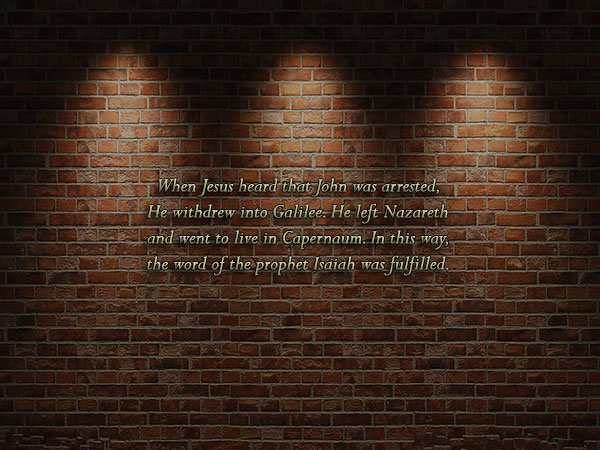Jn 7:1-2, 10, 25-30
After this, Jesus went around Galilee; he would not go about in Judea, because the Jews wanted to kill him. Now the Jewish feast of the Tents was at hand.
But after his brothers had gone to the festival, he also went up, not publicly but in secret.
Some of the people of Jerusalem said, “Is this not the man they want to kill? And here he is speaking freely, and they don’t say a word to him? Can it be, that the rulers know that this is really the Christ? Yet we know where this man comes from; but when the Christ appears, no one will know where he comes from.”
So Jesus announced in a loud voice in the temple court where he was teaching, “You say that you know me and know where I come from! I have not come of myself; I was sent by the One who is true, and you don’t know him. I know him, for I come from him, and he sent me.”
They would have arrested him, but no one laid hands on him because his time had not yet come.
REFLECTION
Like many stories in the Bible, the story of Cain and Abel epitomizes a universal characteristic of human nature. In this case it is the fact that a person’s genuine goodness produces in others a reaction of violent rejection.
Of Abel, the Bible says that, on the occasion when he made an offering to God, he “brought one of the best firstlings of his flock” (Gen 4:4). This is not said of Cain’s offering. In fact, since God did not accept it, the Bible hints that Cain had offered only his second best fruit of the soil. “Cain greatly resented this,” the text adds. And, as the story unfolds, we see that Cain’s hate for Abel brings him to murder Abel.
In both of today’s readings we see at work the same typical reaction of hate when someone is confronted with genuine goodness: in the Book of Wisdom we see evil men plotting the death of a righteous man, and in John’s gospel we see how the enemies of Jesus are plotting to kill him.
Why this negative reaction on the part of evil men? Because, by contrast, genuine goodness shows them for what they are. And who wants to see how ugly one is?
CLARETIAN COMMUNICATIONS FOUNDATION, INC.
8 Mayumi Street, U.P. Village, Diliman, 1101 Quezon City, Philippines
Tel.: (02) 921-3984 • 922-00-11 • 921-28-59 Fax: (02) 921-6205, 927-7429
Bookstore: (02) 924-6835
Email: ccfi@claretianpublications.com / cci@claret.org
Website: www.claretianpublications.com







